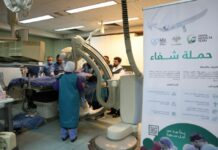
Syrian President Ahmad al-Sharaa is expected to visit Berlin in the coming days at the invitation of German Chancellor Friedrich Merz, in a move signaling a sharp turn in Germany’s decade-long refugee policy. The visit, confirmed by multiple German and Syrian sources, comes as Berlin prepares new deportation measures targeting Syrians with criminal records and explores broader cooperation with Damascus on reconstruction and stability.
Merz told reporters in the northern city of Husum that “the war in Syria is over,” adding that “there is no longer any reason to seek asylum in Germany.” His remarks reflected a conservative shift to repatriate Syrians and end what he described as “a temporary protection policy that has outlived its purpose.”
The chancellor’s invitation to Sharaa marks the first visit by a Syrian leader to Germany since the fall of Bashar Assad’s regime last December, a development that has reshaped European attitudes toward the conflict-ravaged country.
Germany Divided on Deportation Plans
The government’s proposal to begin deporting Syrians, initially those convicted of crimes, sparked heated political debate. Foreign Minister Johannes Wadephul, who visited the Damascus suburb of Harasta in late October, expressed caution, saying that “a return is possible only on a very limited scale because much of the country’s infrastructure has been destroyed.”
Wadephul’s remarks drew criticism from senior members of Merz’s Christian Democratic Union (CDU) and its Bavarian ally, the Christian Social Union (CSU). Party leaders such as Günter Krings argued that “who will rebuild Syria if not its own citizens?” while CSU Secretary-General Martin Huber said the end of the war should be “a reason for optimism,” calling for the creation of a national “return strategy.”
Interior Minister Alexander Dobrindt, who has overseen the tightening of asylum rules, confirmed that Germany is “working to reach an agreement with the Syrian government to facilitate deportations.” According to Bild, the review will begin with rejected asylum applications from young Syrians who are able to work.
Balancing Stability and Return
A source in the German Foreign Ministry told Syria TV that Sharaa’s visit will follow a preparatory trip by Foreign Minister Asaad al-Shaibani, who is expected to establish a Syrian-German Business Council in Berlin. The council would lay groundwork for postwar economic cooperation and help frame refugee return as part of Syria’s reconstruction.
Merz said Germany “wants to contribute to achieving stability in Syria” and believes “the refugees themselves must be part of the solution, not remain here forever.” He added that “many Syrians want to return, and we will help with that and support rapid reconstruction.”
Roughly one million Syrians currently live in Germany, most of whom arrived during the 2015–2016 refugee crisis under former Chancellor Angela Merkel’s open-door policy. As support for far-right parties grows, Merz’s government faces pressure to reverse that legacy, making Sharaa’s upcoming visit a defining moment in Europe’s recalibration toward Damascus.








